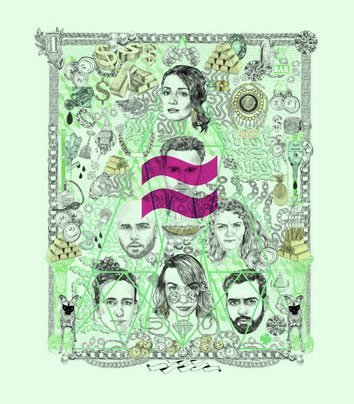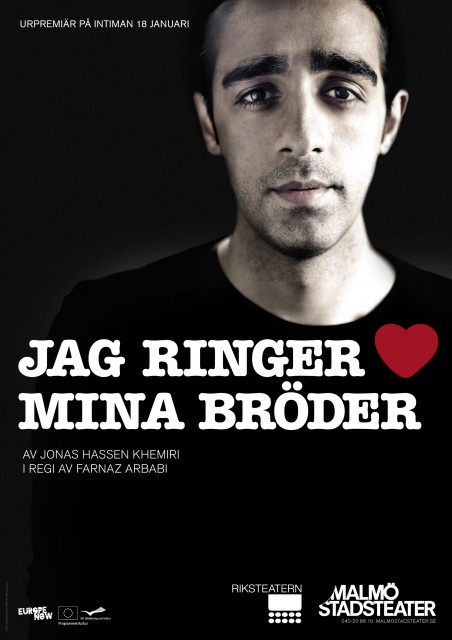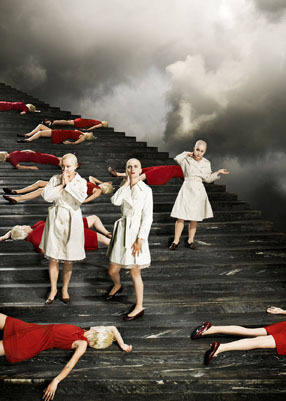
God Times Five

A drama teacher wants to direct Strindberg’s A Dream Play, but his students refuse. Instead, they decide to fill the stage with their own dreams. Everyone is given a chance to play God. Blanca revives his dead sister, Idris releases his imprisoned brothers, Olivia brings together her separated parents and mute Sanoj transforms him/herself into language.
Reviews
“One of the autumn’s hottest plays (…) This is a fantastic little show
and bound to be one of the year’s funniest and liveliest theatrical
events.” /Dagens Nyheter
“Jonas Hassen Khemiri has taken us by surprise before and does so
again here. The construction of the play is quite ingenious. (…) Just
as in his novels, the play is note perfect. This is something more
than a good script, it is good theatre.” /Kulturnyheterna SVT
“Fantastically entertaining, a real hit and almost entirely
unpredictable… this is the play the younger audience – let’s say from 15 to 25 – just has to see this autumn.” /Dagens Nyheter
“In the last few years, Jonas Hassen Khemiri has become the favourite playwright of theatre-going Swedes (…) above all, though, “God Times Five” is entertainment in its most intelligent form – quick-fire, assured and contemporary.” /Aftonbladet
“Excellent (…) The play constantly shifts between various fictional
levels, which is Hassen Khemiri’s speciality. He deals with subjects
such as violence, racism and Sweden’s Nazi-tinged past in such an
intricate fashion that we are never able to rest comfortably in the
knowledge that we are on the side of the good and the right.” /Svenska Dagbladet
“It becomes painfully clear what power words have. But what is also
apparent in Jonas Hassen Khemiri’s world is how entertaining words can be. The play’s form and content match one another perfectly. (…) Humour and seriousness are combined in God Times Five in a manner that is far too rare.” /Smålandsposten
“Almost alarmingly funny. Khemiri is a magician of words.” /Nummer.se
The play premiered in Sweden in the spring of 2008, directed by Sara Giese. It then toured Sweden with Riksteatern.
A second version of the play premiered in Stockholm in the fall of 2008, directed by Hugo Hansén.
It has also been performed in Germany and Norway.









